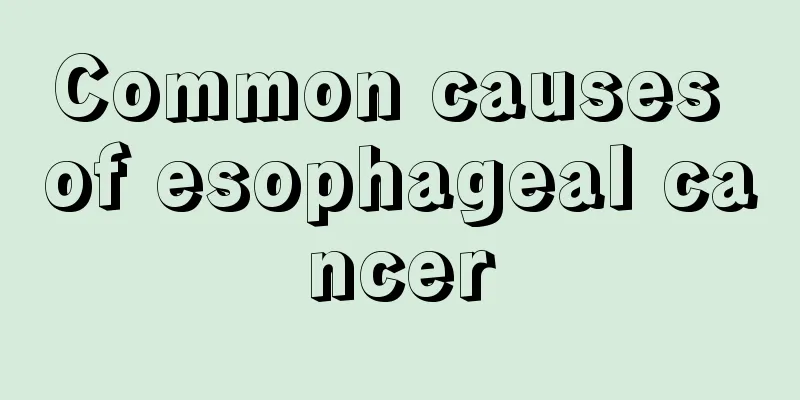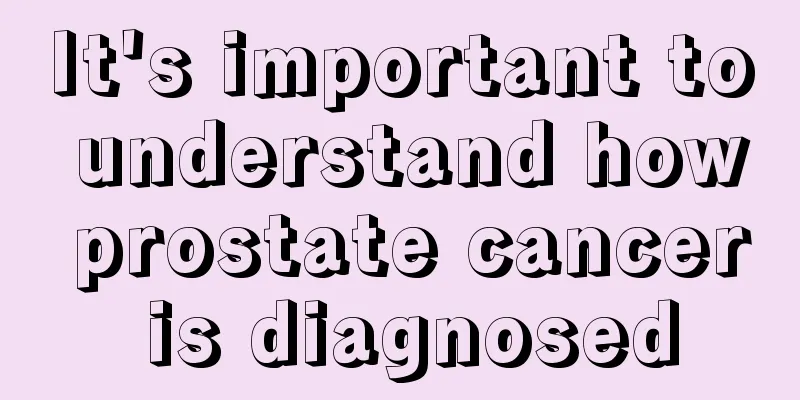Common causes of esophageal cancer

|
There are many causes of esophageal cancer. There are two main causes of esophageal cancer: one is due to changes in diet structure and living habits, and the other is caused by external factors. The following is a detailed introduction to the causes of esophageal cancer by relevant experts. (1) Damage to the esophageal mucosa: Long-term consumption of hot and coarse food, strong tea, and spicy foods such as chili peppers can cause damage to the esophageal mucosa, causing hyperplasia and metaplasia of the esophageal mucosa, which may also be one of the carcinogenic factors. Smoking and drinking strong alcohol are related to the onset of esophageal cancer. Various long-term esophagitis may be precancerous lesions of esophageal cancer. (2) Nitrosamines: Nitrosamine compounds are very strong carcinogens. Studies have shown that residents in Lin County, a high-incidence area for esophageal cancer, who eat sauerkraut, have methylbenzylnitrosamine, nitrosopyrrolidine, and nitrosoguanidine in their gastric juice and urine, which can induce esophageal cancer. It was also found that the amount of sauerkraut consumed is significantly correlated with the incidence of esophageal cancer. (3) Trace elements and malnutrition: The serum molybdenum, hair molybdenum, urine molybdenum, and molybdenum in esophageal cancer tissues of people in high-incidence areas for esophageal cancer are all lower than normal. The soil and water in the high-incidence area for esophageal cancer in Lin County lack molybdenum, and the anti-cancer effect of molybdenum has been confirmed by most scholars. Malnutrition, insufficient intake of animal protein, and vitamin AB2C deficiency are common characteristics of the diet of residents in high-incidence areas for esophageal cancer. However, esophageal cancer is not common in most high-incidence areas for malnutrition, so this cannot be a dominant factor. 4) Mold carcinogenic factors: Eating moldy food can induce precancerous lesions or squamous cell carcinoma of the esophagus and stomach in mice. This type of mold has a synergistic effect with nitrosamines in promoting cancer. This is also one of the causes of esophageal cancer. (5) Genetic factors: Esophageal cancer has a significant familial clustering phenomenon. In high-incidence areas, it is not uncommon for families to have three or more generations of the disease. However, esophageal cancer is definitely not hereditary. Instead, it is closely related to the family's eating habits. The above is an introduction to the causes of esophageal cancer. I believe everyone should have a certain understanding of esophageal cancer. If you want to know more about esophageal cancer, please consult online experts. For more information, please visit the esophageal cancer disease special topic at http://www..com.cn/zhongliu/sda/ or consult an expert for free. The expert will then give a detailed answer based on the patient's specific situation. |
<<: Breast cancer tracker--protein mapping technology
>>: How to correctly diagnose malignant lymphoma at early stage
Recommend
What to do if you can’t get up in winter
The weather is cold in winter and many people don...
Can advanced liver cancer be cured? How to treat advanced liver cancer?
When liver cancer is in the late stage, there wil...
Why does my face always get dry skin
This is an era of beauty. We all pay attention to...
What are the common risk factors for lung cancer? Stay away from five high-risk factors for lung cancer to avoid the disease
For lung cancer patients, most of them have a lon...
What do you put in the IV drip for heat stroke
In the hot summer, many people suffer from sympto...
What to do if you have a near-head toothache
In daily life, we often encounter the problem of ...
Will you grow taller by doing fitness
Fitness has become a trend. Both the elderly and ...
What is a neurogenic tumor
Neurogenic tumors are a very common type of tumor...
Can pharyngitis cause stomach discomfort?
Pharyngitis can cause dryness and burning sensati...
Early symptoms of melanoma
Among many surgical diseases, melanoma is one of ...
What is the specific medicine for treating kidney stones
Kidney stones are a type of urinary system diseas...
7 subconscious actions can shorten your life by 20 years
When people are bored, nervous or anxious, they o...
The three major symptoms of left colon cancer
Left colon cancer mainly refers to the area where...
What are the treatments for lung cancer? This is a better treatment for lung cancer
In today's society, economic development has ...
What are the classifications of anesthesia methods?
Anesthesia is usually used during surgery or woun...









